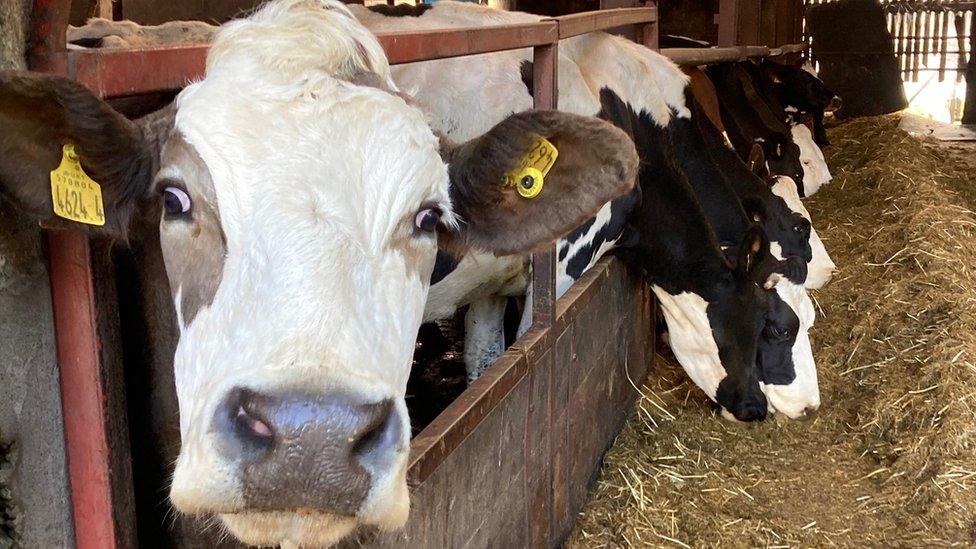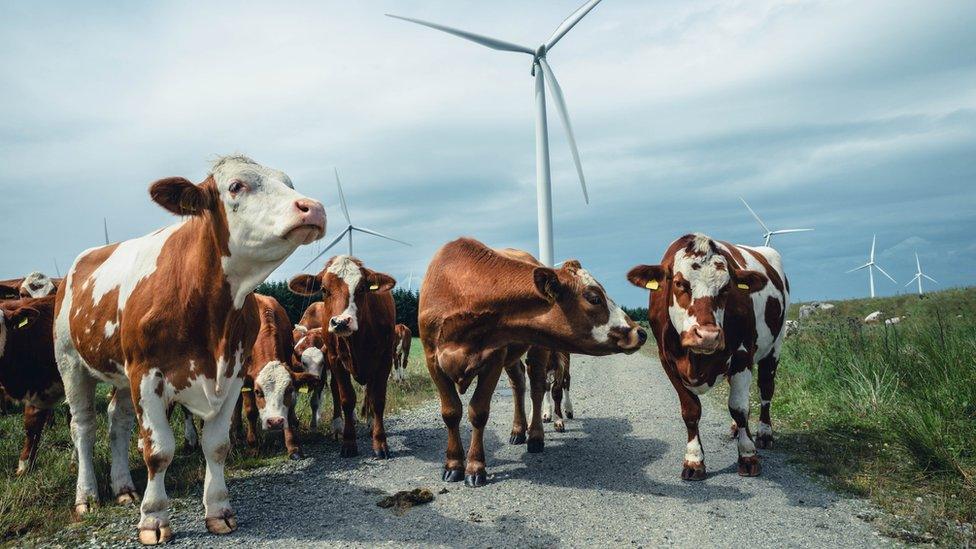Public consultation launched into NI's carbon emission aims
- Published
- comments

The Department of Agriculture, Environment and Rural Affairs has launched a consultation with public events expected to start in August
The public are being invited to have their say on Northern Ireland's carbon emission aims.
The Department of Agriculture, Environment and Rural Affairs (DAERA) has launched a consultation with public events expected to start in August., external
It is asking for people's feedback on the proposed first three carbon budgets for 2023-2027, 2028-2032 and 2033-2037.
A carbon budget is the maximum amount of greenhouse gases that can be emitted over a period of time.
You can have your say by clicking on this link., external
Setting targets to limit those emissions is a key weapon in the fight against climate change.
The consultation will also cover the interim targets that should be set for 2030 and 2040 for reductions in greenhouse gases.
It will continues until 11 October 2023.
The Climate Change Act, passed by Stormont last year, sets a target of reaching Net Zero by 2050.
Net Zero means cutting greenhouse gas emissions - like carbon and methane - to as close to zero as possible, with any remaining emissions re-absorbed, for example by forests.
The Act also requires carbon budgets to be set.
The UK's Climate Change Committee has advised that the first Carbon Budget for Northern Ireland from 2023-2027 should be set at levels that have an average reduction of 33% on 1990 levels.
The second, from 2028-2032, requires an annual reduction of 48% and the third requires a reduction of 62% during the period 2033-37.
'Significant' challenges
DAERA has described the scale of the challenge as "significant".
The Permanent Secretary Katrina Godfrey said the consultation was designed to put officials in a better position to advise all returning ministers on the steps needed to meet the cross-cutting legal requirements.
"The work we have done to date has identified that continuing to follow many of the policies and programmes that predate the Climate Change Act will not deliver the progress that is now needed," she said.
She added: "A very different, climate-focused approach to decision-making on policy interventions and the investment of public funds is going to be required."
She added that there were "new, greener economic opportunities" that could be identified.
Related topics
- Published20 June 2023

- Published9 February 2023

- Published13 November 2024

